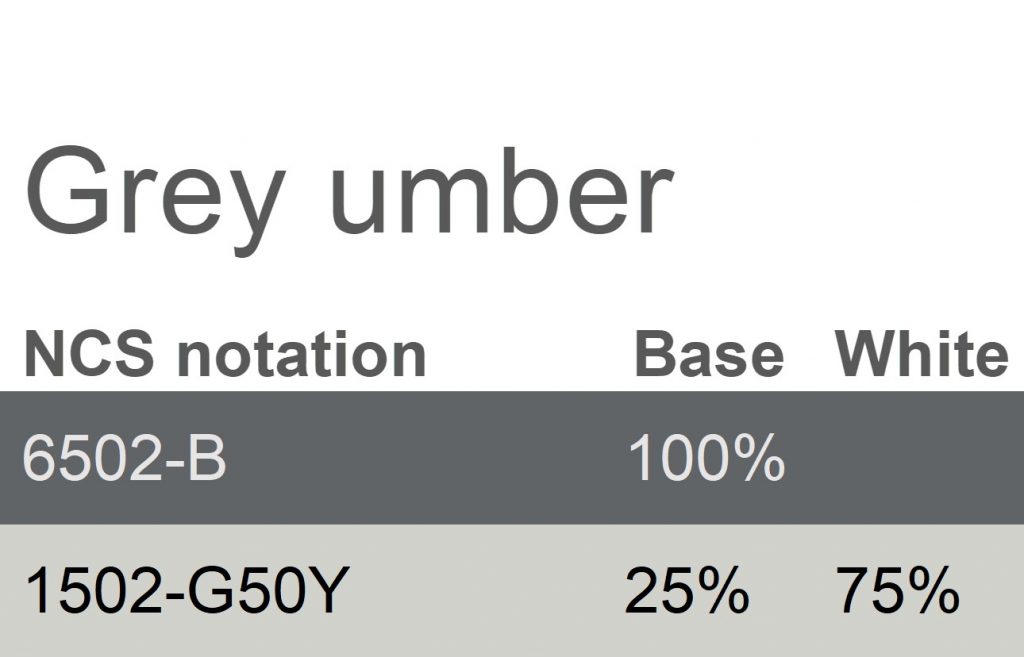
Grey umber
Grey umber is an earth pigment that gives warm grey colours. It has a high degree of transparency and lightfastness. It is suitable for glazing paint for both exterior and interior surfaces.
The umber pigments can be used in paint mixtures to reduce the intensity of other colours. The colours vary depending on where they are extracted and which minerals they contain. Mostly natural iron oxides and manganese compounds determine the colour.
The names of the earth pigments vary, even if the colours are similar or even identical. Distributors sometimes present them with the name of the location in which they are found. Grey umber and green umber are very similar. The colours you achieve with both umbers overlap to some extent and in some cases they are not even distinguished as two different pigments.
Similar pigments in Kulturkulör: Green umber
Other umber pigments in Kulturkulör: Burnt umber, raw umber, brown umber, green umber
Mixing chart
Kulturkulör’s mixing chart describes how you can mix traditional linseed oil paints to achieve specific colours. The chart shows the result of mixing ready-made paints and the parts are stated in percent by weight.
NCS – Natural Colour System®© is a logical colour system which builds on how the human being sees colour. The NCS notation makes it possible to describe the colours of all surface materials. You can read more about the NCS system here.

There are mixing charts for a selection of the colour samples in Kulturkulör. In the sample collection you can find more nuances that you can create with linseed oil paint and traditional pigments . The mixing charts will give you an idea of how the colour changes when mixing with white and in some cases when adding black. The mixing ratios are approximate and the properties of the pigments vary.
The mixing chart is colour coded to give an idea of the result of the mixture and what colours you can achieve with the traditional pigment, but keep in mind that the colour display varies between computer screens.